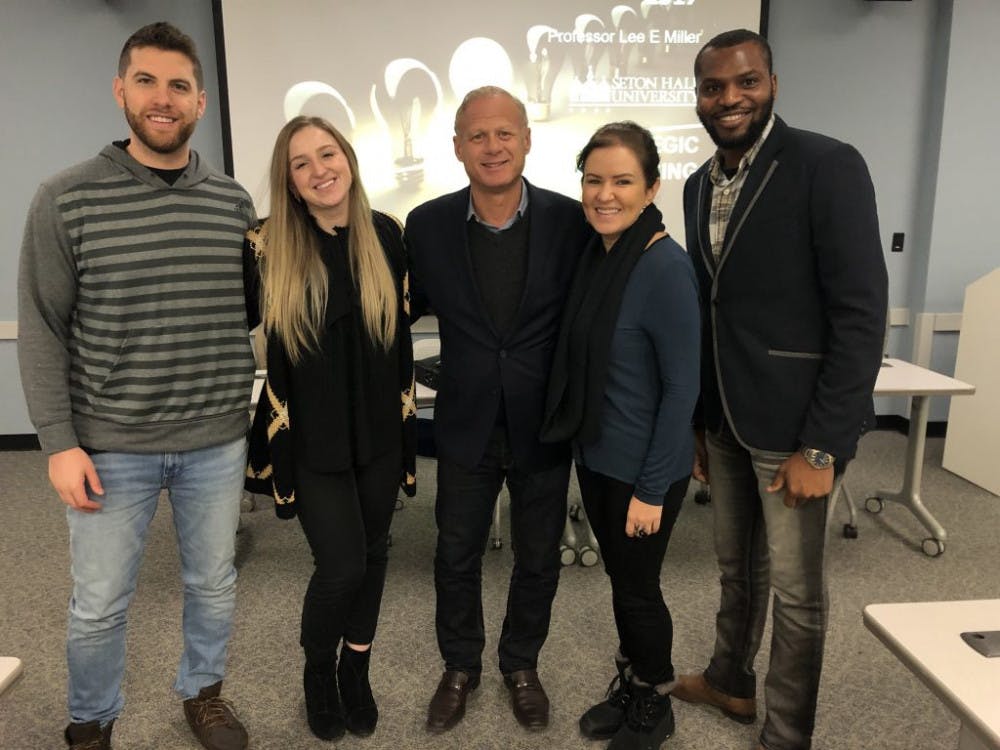The Seton Hall Abd El-Kader (AEK) fellowship is working with a team of eight diplomacy students on a project with the U.S. Army in Northern Africa. The students on the team conduct research, participate in discussions with leaders and propose policies to make real-life impacts.

Mohamad Mirghahari, the Abd El-Kader Fellow at the School of Diplomacy and International Relations, described the experience as exceptional, where students could learn how to brief, present information and go through the analytic research process, while benefiting the vast continent of Africa.
“Africa is such a unique continent with all that’s going on, like internal conflict, I think that what the students are doing is very important and valuable,” Mirghahari said. “To me and to them, a lot of them aren’t necessarily African Studies experts, so what makes it even more unique is that they learn to adapt.
“That’s a very important skill set when you’re trying to get a position in the private sector. You’re not always going to work in your comfort zone, and I think that’s something the students have become appreciative of.”
Mirghahari said the project also has different guest speakers from the government meet their students, whether it is in-person or a video call.
They spoke to the director of security cooperation from Africa and are planning a call with the U.S. Embassy in Rwanda.
Erick Agbleke, a diplomacy graduate student, is a participant of the AEK fellowship. He said the project name came from the Algerian Emir, who fought bravely against the French colonization of Algeria and sheltered Christians and Jews from mass extermination, although he was from a different religion.
“It was critical to apply and discuss what we learned in the classroom, but it was more important to think outside the box and be willing to be unconventional with our suggestions to solve the problem,” Agbleke said. “I also learned to not underestimate the power of past experiences and lessons learned from them can be applied elsewhere.”
Agbleke said that he believes that many conflicts can avoid the use of arms, with just a little bit of creativity on how to address and resolve an issue.
“As someone with a military background, I had to take off that military hat, and wear my student of Diplomacy hat,” he said. “That means to be a good contributor to group discussions, I had to first identify the problem, look at what is already being done and why it is not working.”
Oluwagbemiga Oyeneye, a second-year diplomacy graduate student, shared his experience as a participant of the AEK fellowship.
“First, and I believe I can say this for everybody working on the project, we are learning a lot about the region that we are researching on-- North Africa,” Oyeneye said. “But more importantly, there are some intrinsic values and lessons that you learn from a project like this one.
“For me, it is about learning to work in a very diverse team of talented students. There is the component of learning to think and write on real-world current problems, in which you have to make practical and applicable recommendations.”
Oyeneye said his favorite part about the project is the exposure he receives through meeting and connecting with experts in their respective fields of endeavors. “Getting to discuss with them and receive feedback from them has been a positive experience for me, especially the mentorship of Mr. Mirghahari,” he said.
Agbleke said, “My hope is to see our recommendations being implemented into policy, which would have great impacts on a lot of lives for generations to come.”
Werdeh Hassan can be reached at werdeh.hassan@student.shu.edu.





